One thing that's struck me about the Hong Kong SAR is the surprising amount of signs forbidding certain actions. Generally they're understandable. For instance in one park there was a sign saying “no lying on the benches”. The idea is to keep homeless people from sleeping in the park. That makes sense to me (particularly given the amount of squatters huts one finds after venturing outside of the more urban areas). But then again signs like these are everywhere. The extent to which it's enforced is debatable, I've definitely seen people breaking some of the rules in view of cameras. In my opinion it says something about a society when they feel the need to articulate these matters. The question is what?
My first thought on the matter is that Asian countries seem to have more societal norms and minor rules than do western countries. Adhering to these norms is generally more important as well. A friend of mine made the mistake of playing a guitar on the beach in Korea one time. The police were were all over that faux pas. Another example is my experience at the Wal-mart in Kunming. There was a very clearly marked exit but the entrance was more difficult to come by. Upon trying to enter in the wrong end I was very promptly turned away. It seemed a little odd to me. Given that the end game is for people to purchase their products why should they care where people enter through? But these are the rules and they must be abided by.
Another item which didn't escape my attention the last time around was that mainland China didn't seem to be as particular about these matters as Korea or Japan. Now it's very possible that this could be a matter of democracies having a greater tendency to be developed than non-democracies, but from what I've seen and read it seems to me that there is a democratic tendency toward nanny statism. Voters like little things like seatbelt laws and banning trans-fats. It makes people feel warm and fuzzy when they walk out of a voting booth thinking they've made life safer for their neighbors. Authoritarian governments on the other hand aren't affected by such things and if you want to smoke in an elevator in Beijing... why not? So possibly it has to do with HKSAR's particular brand of democracy.
My final and favorite theory pertained to Hong Kong's British heritage. The UK after all is possibly the nanny state to end all nanny states. Perhaps the SAR developed these tendencies under the UK's stewardship. It's also possible that those in government and the electorate in general picked up on British norms and these signs developed alongside the current British padded society but separately.
Sadly, I just don't have enough knowledge on the matter to come to a truly educated guess. The history and culture of Hong Kong just came into my periphery a matter of weeks ago and I'm a complete stranger here. From this vantage point it would take a great deal of research for which I no longer have the resources (oh FSU information databases, how I miss you) nor the time. Perhaps at a later date some theory on the evolution of nanny states will be thesis material for an MS. For right now I'll just have to leave it as probably some sort of combination of all three.
All of the following signs were in the same small park:
My first thought on the matter is that Asian countries seem to have more societal norms and minor rules than do western countries. Adhering to these norms is generally more important as well. A friend of mine made the mistake of playing a guitar on the beach in Korea one time. The police were were all over that faux pas. Another example is my experience at the Wal-mart in Kunming. There was a very clearly marked exit but the entrance was more difficult to come by. Upon trying to enter in the wrong end I was very promptly turned away. It seemed a little odd to me. Given that the end game is for people to purchase their products why should they care where people enter through? But these are the rules and they must be abided by.
Another item which didn't escape my attention the last time around was that mainland China didn't seem to be as particular about these matters as Korea or Japan. Now it's very possible that this could be a matter of democracies having a greater tendency to be developed than non-democracies, but from what I've seen and read it seems to me that there is a democratic tendency toward nanny statism. Voters like little things like seatbelt laws and banning trans-fats. It makes people feel warm and fuzzy when they walk out of a voting booth thinking they've made life safer for their neighbors. Authoritarian governments on the other hand aren't affected by such things and if you want to smoke in an elevator in Beijing... why not? So possibly it has to do with HKSAR's particular brand of democracy.
My final and favorite theory pertained to Hong Kong's British heritage. The UK after all is possibly the nanny state to end all nanny states. Perhaps the SAR developed these tendencies under the UK's stewardship. It's also possible that those in government and the electorate in general picked up on British norms and these signs developed alongside the current British padded society but separately.
Sadly, I just don't have enough knowledge on the matter to come to a truly educated guess. The history and culture of Hong Kong just came into my periphery a matter of weeks ago and I'm a complete stranger here. From this vantage point it would take a great deal of research for which I no longer have the resources (oh FSU information databases, how I miss you) nor the time. Perhaps at a later date some theory on the evolution of nanny states will be thesis material for an MS. For right now I'll just have to leave it as probably some sort of combination of all three.
All of the following signs were in the same small park:
The two foot deep Koi pond... err, "pool" in which paddling is not allowed:
Post script: if you would allow me beg of your pardon for what may have seemed at times somewhat obfusticated language in the preceding passage. Most of my reading of late has been of the 19th century variety due to it being free of cost on Amazon's Kindle. As they say a shilling saved is a shilling earned! Despite my best efforts to remedy this particular literary ailment, Sir Arthur Conan Doyle's wordage seems to have put a peculiar spin on that of my own quill.
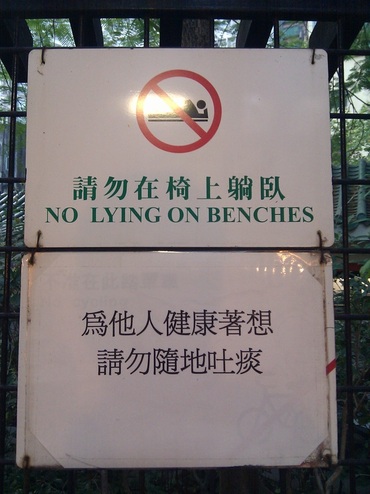
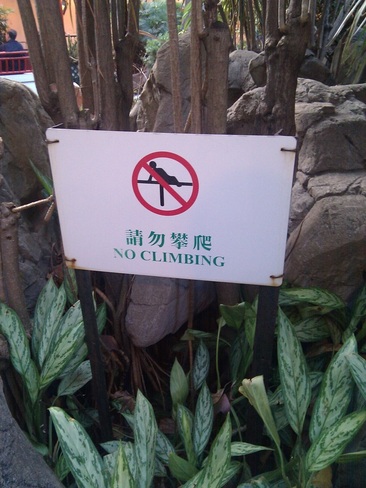
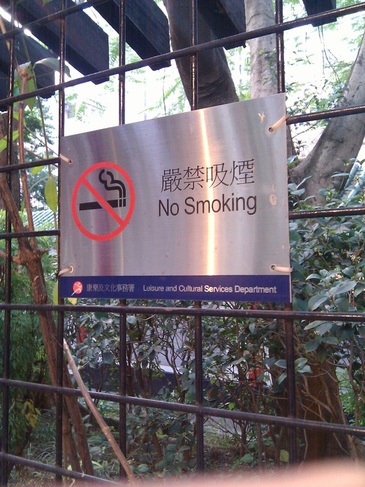
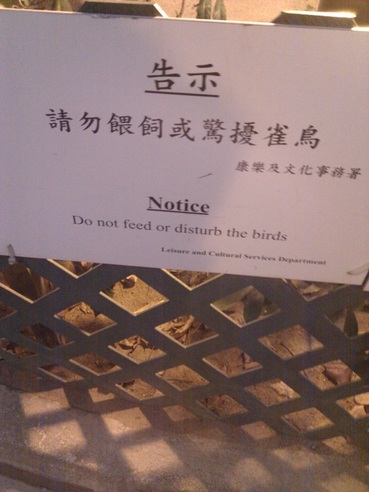

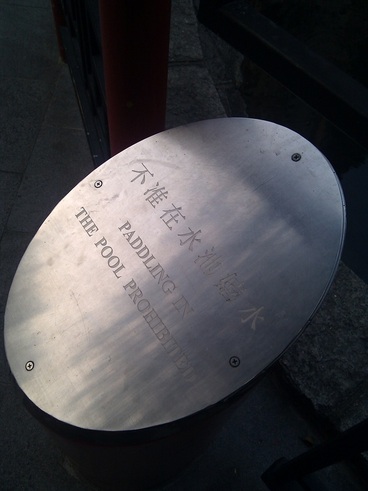
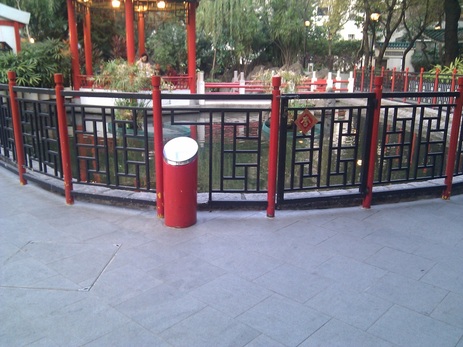

 RSS Feed
RSS Feed